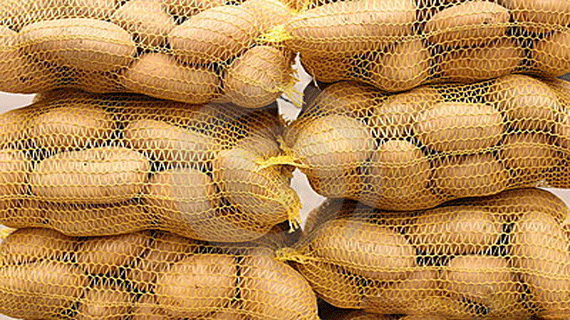
A POTATO shortage has hit the market in Bulawayo following the move by the government last month to ban imports of fresh fruit and vegetables, Southern Eye Business has established.
MTHANDAZO NYONI OWN CORRESPONDENT
The government banned imports of fresh fruits and vegetables arguing that increased sales of local products would boost local production to meet domestic demand.
The ban impacted mostly on supplies of tomatoes, potatoes, mangoes, grapes and apples from neighbouring South Africa.
However, a survey conducted by Southern Eye Business yesterday revealed that places like Egodini where vegetable vendors used to sell potatoes, the crop was hard to come by.
At the Bulawayo vegetable market the situation was the same. Prices of the few potatoes available in the central business district have sky-rocketed with a plastic packet containing 10 potatoes pegged at $1 from R5.
Vegetable dealers said potatoes were very hard to acquire in Bulawayo because of the high demand.
“Last week we spent seven days in Inyanga trying to buy as many potatoes as we could, but we only managed to buy 50 pockets.
- Chamisa under fire over US$120K donation
- Mavhunga puts DeMbare into Chibuku quarterfinals
- Pension funds bet on Cabora Bassa oilfields
- Councils defy govt fire tender directive
Keep Reading
“The demand is high and local suppliers are failing to serve the market. We ended up smuggling them from South Africa even though it is very expensive and illegal,” a vegetable dealer who declined to be named said.
Zimbabwe Commercial Farmers’ Union president Wonder Chabikwa said the potato shortage was as a result of the government’s ban on vegetable imports, but the situation would be averted sooner.
“Potato production is down and the supply in the market is low due to the ban of vegetable imports. We are encouraging farmers to take the advantage of the ban and start producing more vegetables. The shortage of potatoes will be with us for long, but I am sure the farmers will catch up,” he said.
Chabikwa said the price of potatoes in January was as low as $3 a pocket, giving authorities a false impression that there were too many potatoes in the market, hence the ban.
Charles Taffs, President of the Commercial Farmers’ Union said the issue was being exacerbated by poor distribution.
The ban of vegetable imports also affected local supermarkets who were importing vegetables and fresh fruits from neighbouring countries.
This saw the Botswana Stock Exchange-listed retail firm, Choppies proposing supplying local farmers with equipment and inputs to produce fruits and vegetables so that they could buy quality produce from them.
South African fruit and vegetable exports to Zimbabwe are worth at least $1 million a month, according to trade data.
Zimbabwe’s farming output, including from its staple maize crop, has slumped by over 60% since 2000, following seizures of white-owned farms by President Robert Mugabe.










